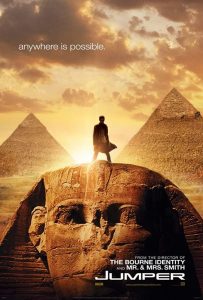 First I was lazy, then I was busy, then I was distracted, then I was sick. Like, a lot sick. Stupid flu. I bet if they’d had the right shot available this year, I wouldn’t have gotten it, is all I’m saying, and then I’d only have three excuses instead of four. (Plus more money, but that’s a separate issue.) Anyway, these problems have conspired to prevent me from finishing a book in practically ages, so I’m alright on that front, but I have seen a couple of movies, one of them weeks ago. So that part is embarrassing, but I shall rectify the issue via a quick review now!
First I was lazy, then I was busy, then I was distracted, then I was sick. Like, a lot sick. Stupid flu. I bet if they’d had the right shot available this year, I wouldn’t have gotten it, is all I’m saying, and then I’d only have three excuses instead of four. (Plus more money, but that’s a separate issue.) Anyway, these problems have conspired to prevent me from finishing a book in practically ages, so I’m alright on that front, but I have seen a couple of movies, one of them weeks ago. So that part is embarrassing, but I shall rectify the issue via a quick review now!
Jumper tells the story of a guy who used to be Anakin Skywalker, but instead of having a lightsaber and a pregnant girlfriend, he can teleport around and also his girlfriend isn’t pregnant. So really, life would be fantastic, since he can steal whatever he needs with no hope of being caught[1] and there’s no child support to worry about. Except his girlfriend notices little inconsistencies in his story like how she last saw him trapped under a frozen river like ten years ago and how he has an awful lot of money for not spending much time at a job and how people want to kill her because she knows him. Which is a pity, life being so great otherwise.
Well, and there’s one other fly in the ointment, I suppose, in that Samuel L. Jackson runs (or at least runs the operational end of) an organization of Paladins who have been hunting down Jumpers for centuries. They claim that this is because only God should have the power to be everywhere, but even a first-year Jesuit could easily point out that the Jumpers are only one place at a time, and anyway God made them that way, right, so what’s the big deal? Clearly the truth of the matter is that Sam is still angry about the time when the kid cut his arm off and pushed him off a building, and he invented this centuries-old underground war out of whole cloth to cover the revenge angle so it would play better to the audience. Which I can understand all of except the part where he actually thought anyone would buy the conspiracy in the first place, because, come on! What did those Jumper dudes ever do to y’all, seriously? If you were Bankers instead of Paladins, yeah, that would be one thing.
I approved of all the nifty teleportastic special effects, and of the awesome location shots, and that they dunked Rachel Bilson in a lake[2], and even in a Little Engine That Could kind of way I approved of them setting themselves up for a sequel. I cannot bring myself to approve of the plot, or really even of using the word ‘plot’ in conjunction with the shooting script that ended up on film. That would be going a little too far. But it had eye candy and humor; even the intentional kind, from time to time. I hope it turns into a cult classic, now that I’m thinking about it, because that would be a pretty fair outcome.
[1] and he doesn’t really need to spend any money on gas or airplane tickets in the first place, such that he could probably go legit as a one-man shipping company, but at least that never actually happens, because holy wow, it would have been boring.
[2] Seriously, prune skin aside, if I had my way that girl would never be dry.
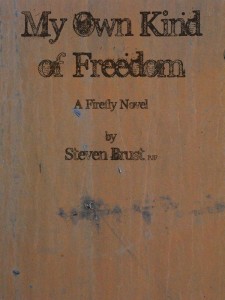
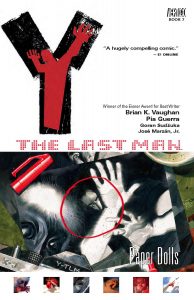 So, I notice that my Y reviews are getting shorter over time. I figure this is in part because it grows harder to avoid spoilers as a series grows in length, and in part because Brian K. Vaughan is doing his level best to delay a conclusion to the series. (Well, in point of fact, it already has concluded or will have within just a few weeks. But I mean as of the time of the current collection,
So, I notice that my Y reviews are getting shorter over time. I figure this is in part because it grows harder to avoid spoilers as a series grows in length, and in part because Brian K. Vaughan is doing his level best to delay a conclusion to the series. (Well, in point of fact, it already has concluded or will have within just a few weeks. But I mean as of the time of the current collection, 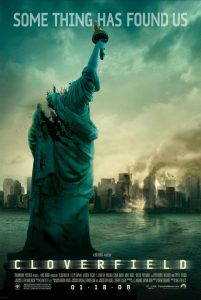 Then, earlier this week I saw
Then, earlier this week I saw 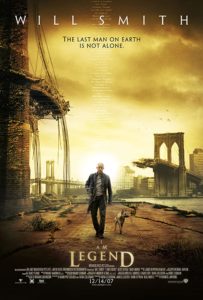 Far back in the mists of Delirium’s history (er, the site, not the girl), I read
Far back in the mists of Delirium’s history (er, the site, not the girl), I read 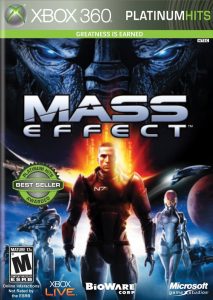 One sign of an extremely good video game is that it would be almost easier to describe it as a movie and leave out the game elements entirely. Well, okay, that may not be true. But if the reason you want to leave out the game elements is that they were so seamless and non-intrusive that you only very occasionally even felt like you were playing something instead of watching it and influencing the outcome, that would be good. It would also be a good sign if your father, no stranger to games even if he’s not the gamer type, were to ask you after watching the last 15 or 20 minutes of the game to clarify that it was in fact a game, and not a movie.
One sign of an extremely good video game is that it would be almost easier to describe it as a movie and leave out the game elements entirely. Well, okay, that may not be true. But if the reason you want to leave out the game elements is that they were so seamless and non-intrusive that you only very occasionally even felt like you were playing something instead of watching it and influencing the outcome, that would be good. It would also be a good sign if your father, no stranger to games even if he’s not the gamer type, were to ask you after watching the last 15 or 20 minutes of the game to clarify that it was in fact a game, and not a movie.


